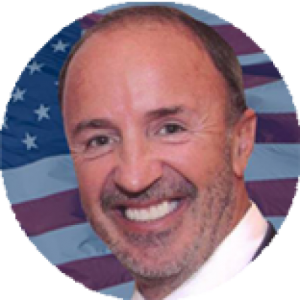Sinn Féin, once the party of the Irish Republican Army, made record gains in the Northern Ireland local elections this weekend, something made possible by voters’ growing frustration with the opposing Democratic Unionist Party’s (DUP’s) blocking of a power-sharing government at Stormont for more than a year.
The semi-autonomous Belfast government has been suspended since the DUP walked out to protest a post-Brexit customs border between Northern Ireland and Great Britain.
With counting completed late Saturday, Sinn Féin, which seeks unification of Northern Ireland with the Republic of Ireland, took 144 of 462 local government seats — an increase of 39 from the last local government elections in 2019. Its main rival, DUP, which wants Northern Ireland to remain a part of the UK, captured 122 seats, while the centrist Alliance Party had 67.
Sinn Féin became the largest party for the first time after last year’s May 2022 assembly election, beating out DUP, which had dominated the legislature for two decades.
US, IRISH MILITARY EXPERTS TRAIN 2 GROUPS OF UKRAINIAN PERSONNEL IN CLEARING UNMARKED MINEFIELDS
Sinn Féin Vice President Michelle O’Neill, who should have become first minister after last year’s historic assembly election, called the local election victories “momentous.”
“The onus is now on the British and Irish governments to get together and focus their efforts on the immediate restoration of the executive and assembly,” she said, according to Sky News. “All the while when the DUP stay out of the executive and the assembly public services are suffering, the public are suffering because of austerity, because of cuts that are coming directly from London.”
Social Democratic and Labour Party leader Colum Eastwood, whose party was one of the architects of the Good Friday Agreement 25 years ago, attributed heavy losses in the recent elections to more moderate voters’ growing frustration with the DUP-induced deadlock.
“They’re very annoyed that Michelle O’Neill hasn’t been able to become first minister,” Eastwood said, according to Politico. “They want politicians to get back to work and deal with the issues besetting our community. Now it’s over to the DUP to get on with it.”
LEFT-WING UK LAWMAKER SUSPENDED AFTER CLAIMING JEWS CAN’T EXPERIENCE RACISM
After the election results were finalized, DUP leader Sir Jeffrey Donaldson admitted, “there are lessons to be learned for unionism in its broadest sense,” according to Sky News. “The DUP has had a good election, but unionism needs to do better, we need to be winning more seats.”
Northern Ireland is the only part of the U.K. that shares a border with an EU member – the Republic of Ireland.
That border is particularly sensitive because of the history of sectarian violence on the island of Ireland, and Britain and the EU agreed to keep the border free of customs posts and other checks to honor Northern Ireland’s peace process. Instead, there were checks on some goods entering Northern Ireland from the rest of the U.K.
That angered the DUP, which maintained that the new trade arrangements undermine Northern Ireland’s place in the U.K. In February, the U.K. and the European Union agreed to a deal to overcome the political crisis. The so-called Windsor Framework aimed to ease customs checks and other hurdles for goods moving to Northern Ireland from the rest of the U.K.
The U.K. and the EU hailed their deal as a decisive breakthrough in their often fractious relationship. The agreement also gives Northern Ireland politicians a mechanism, known as the Stormont Brake, to challenge new EU trade rules that could apply — a key unionist demand. However, the DUP rejected the deal, refusing to take part in the power-sharing government.
“Jeffrey Donaldson has become the greatest recruiting sergeant possible for republicans. The longer Michelle O’Neill is blocked from becoming first minister, the more voters are driven into the arms of her party,” wrote Suzanne Breen, a political editor for the Belfast Telegraph.
The Associated Press contributed to this report.






